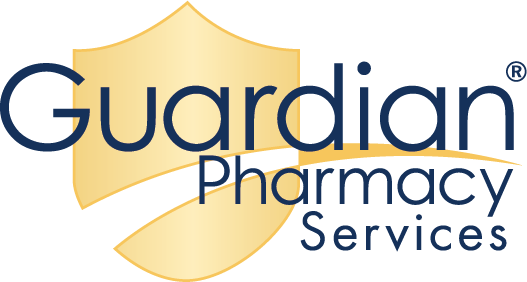By: Rich Eakins
Since the pandemic began, assisted living communities have been working around the clock to shield seniors from the impact of COVID-19. This virus has forced providers to rethink how best to keep residents safe, leading them to establish additional guidelines and protocols to navigate this new normal. We have witnessed the heroic efforts of our assisted living partners protecting residents and preventing the disease from spreading, and those firsthand experiences have confirmed what all of us now know: there is no margin for error against this virus.
At Guardian Pharmacy Services, our staff has remained on the frontlines working with every long-term care (LTC) community we serve to help them design strategies to keep operations efficient and residents and staff safe. After supporting clients during this pandemic, I am more convinced than ever that communities are best served using the preferred pharmacy method. Here are five reasons why a single preferred pharmacy is beneficial to assisted living communities now, during COVID-19, and in the future.
- Community Safety: One of the best ways to protect residents and staff is to limit the number of outside vendors who visit the community. A preferred pharmacy partner already provides deliveries on a daily basis – an essential service that does not have to be duplicated by additional vendors. Rather than invite multiple pharmacies onto the property, potentially exposing residents to the virus, providers can give the preferred pharmacy sole responsibility for deliveries and decrease outside traffic in the community.
- Pharmacy Security: Unlike retail community pharmacies, LTC pharmacies are typically not open to the public. A pharmacy operating behind closed doors can enforce more rigorous safety precautions like limiting person-to-person contact in the workplace, reducing the possibility of staff catching the virus and spreading it to residents.
- Over-The-Counter (OTC) Deliveries: When responsible parties visit public pharmacies to pick up OTC medications, or schedule OTC deliveries from another company, that increases the risk of contagious individuals visiting a community. A preferred pharmacy is already delivering OTC medications with residents’ drug regimens, helping to increase safety and security for the community.
- eMAR: It’s never been more critical for staff to have a resident’s correct medication information at their fingertips. The preferred pharmacy is the only pharmacy able to interface with the community’s eMAR system. Any resident who is using another pharmacy will have to have their medication information entered manually, leaving potential for error. However, through the preferred pharmacy, all doctors, nurses, pharmacists, and staff can easily access essential information and data about each resident through one single channel.
- Customer Service: With so much uncertainty surrounding this pandemic, communities need a partner pharmacy with an experienced staff who can provide immediate assistance at any moment. A preferred pharmacy can provide a direct line of communication and support from a team of dedicated specialists, including licensed pharmacists, nurses and pharmacy technicians, to keep staff and residents prepared and protected.
Every state has different regulations and varying levels of how COVID-19 is affecting residents, making it imperative for communities to streamline pharmacy operations and establish a relationship with one pharmacy who fully understands the local guidelines and challenges. Guardian Pharmacy Services has the expertise and knowledge to create the safest environment possible for staff and residents, and thanks to our business model, every partner pharmacy has full autonomy to make their own decisions at the local level and react quickly to changes caused by this pandemic.
Our teams work and live in the areas we serve, so we know exactly what is going on in your community’s area. Please reach out to a Guardian partner pharmacy to see how our single preferred pharmacy solutions can protect your staff and residents.







